

In the UK, a competitive landscape among supermarkets intensifies as a limited number of retailers vie for customer loyalty. Determining the best deals, quality food, and top-notch service becomes increasingly challenging. The dynamics shift further with the emergence of online grocers amid the coronavirus pandemic. This analysis using retail data scraping explores the leading UK supermarkets, including Co-op Food, Tesco, Sainsbury's, Nisa, Aldi, Lidl, Asda, Morrisons, and M&S Simply Food, shedding light on their offerings, services, and strategies in the face of evolving market conditions.
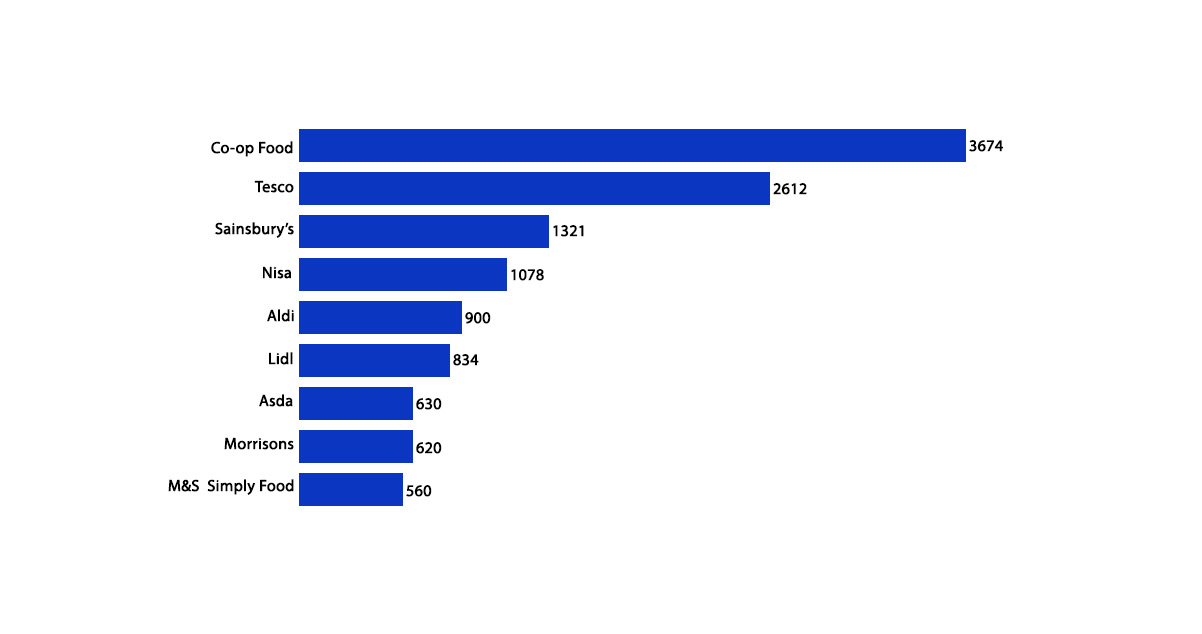
We analyzed by scraping supermarket data encompassing 12,229 locations across nine leading supermarket chains in the UK. Co-op Food emerges as the largest, boasting 3,674 locations, followed by Tesco with 2,612 stores and Sainsbury's with 1,321 locations.
As of October 2020, Tesco and Sainsbury's command the highest market share in the grocery sector. The UK supermarket landscape is primarily dominated by the 'Big 4'—Tesco, Asda, Sainsbury's, and Morrison Supermarkets, each operating full-scale superstores of 40,000 square feet or more.
In response to the challenges posed by the pandemic, the UK government initiated a year-long payment break for business rates in March 2020. It resulted in substantial tax breaks, estimated at nearly £2 billion, for major supermarket chains. Criticism ensued as these supermarkets continued operations while other struggling businesses did not receive similar support. In a commendable move, Tesco, Sainsbury's, Aldi, Asda, and Morrisons pledged to repay the government for savings garnered during the pandemic tax break. At the same time, Co-op and Waitrose chose not to participate.
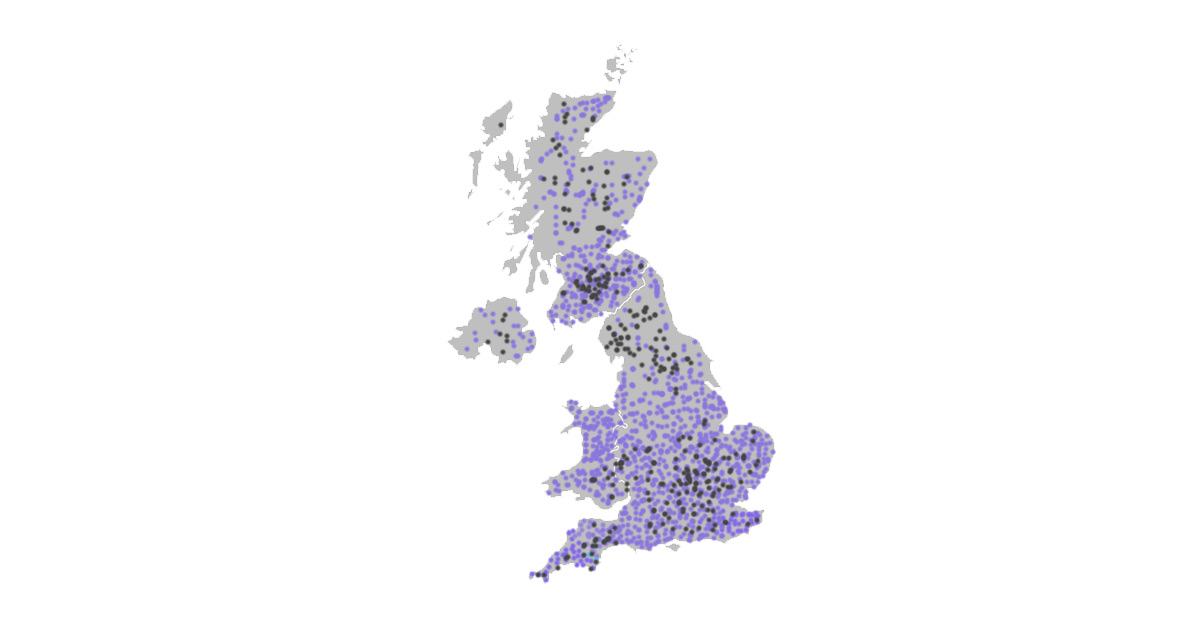
Co-op Food boasts an extensive network of 3,674 stores across the UK, making it the leading supermarket chain. The cities with the highest concentration of Co-op Food supermarkets include London (164), Glasgow (60), and Leicester (50).
Distinguishing itself with a robust presence in rural areas, Co-op Food prioritizes community engagement. Retail Store Location Data Scraping find that supermarket chain has established strong ties with local farmers and family-owned businesses. Co-op grocery stores are renowned for offering premium product ranges, emphasizing a commitment to quality.
Notably, customers who become members of the ethical cooperative can contribute to local charitable causes with every purchase, further enhancing the community-centric approach of Co-op Food.
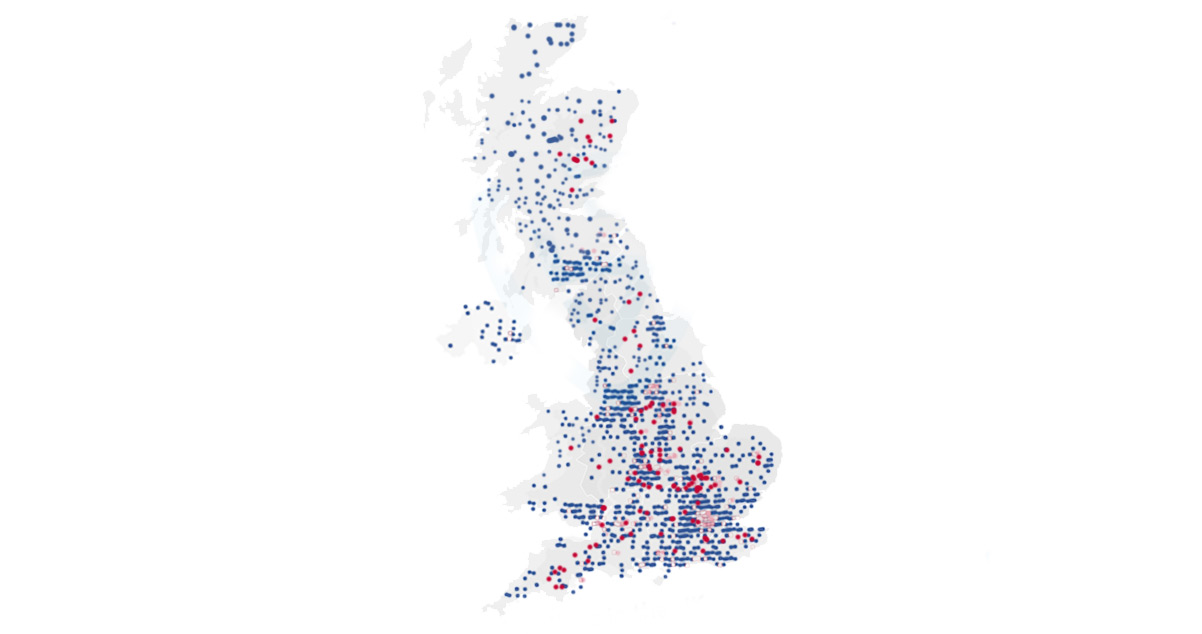
Tesco operates a network of 2,612 stores in the UK, with significant concentrations in London (293), Bristol (42), and Glasgow (40). As a British multinational company, Tesco commands a substantial market share, contributing 27.8% to the country's total market share of supermarket chains.
Tesco strategically caters to diverse consumer needs, emphasizing affordability over premium quality in its product range. The retail giant presents its offerings through various formats, including the enormous hypermarket known as Tesco Extra and city center stores under the names Tesco Metro or Tesco Express. This multifaceted approach allows Tesco to efficiently serve both urban and suburban markets, meeting the preferences and convenience of a broad customer base.
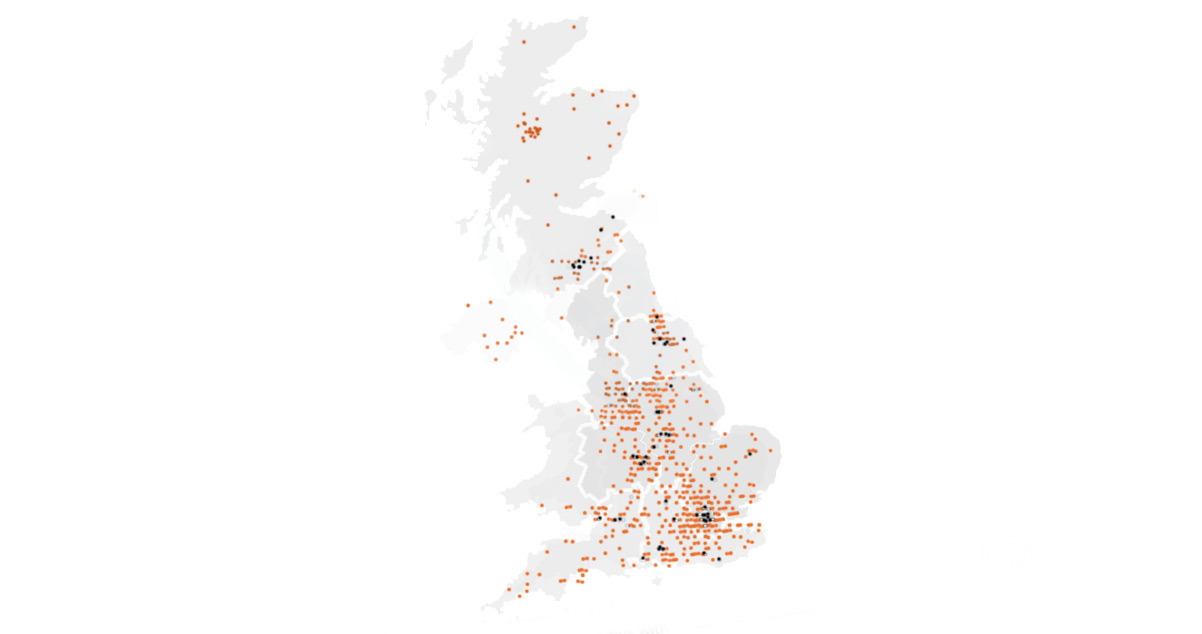
Sainsbury’s, a prominent UK retailer, operates a network of 1,321 stores across the country, with London (278), Glasgow (25), and Edinburgh (25) hosting the highest concentrations of supermarkets. A notable aspect of Sainsbury’s footprint is that 56% of its locations are city center-based stores known as Sainsbury’s Local. This strategic positioning caters to urban consumers, providing convenient access to various grocery and general merchandise offerings. Extract Store Locations Data to give emphasis on city center locations reflects Sainsbury’s commitment to meeting the evolving shopping preferences of customers in densely populated areas.
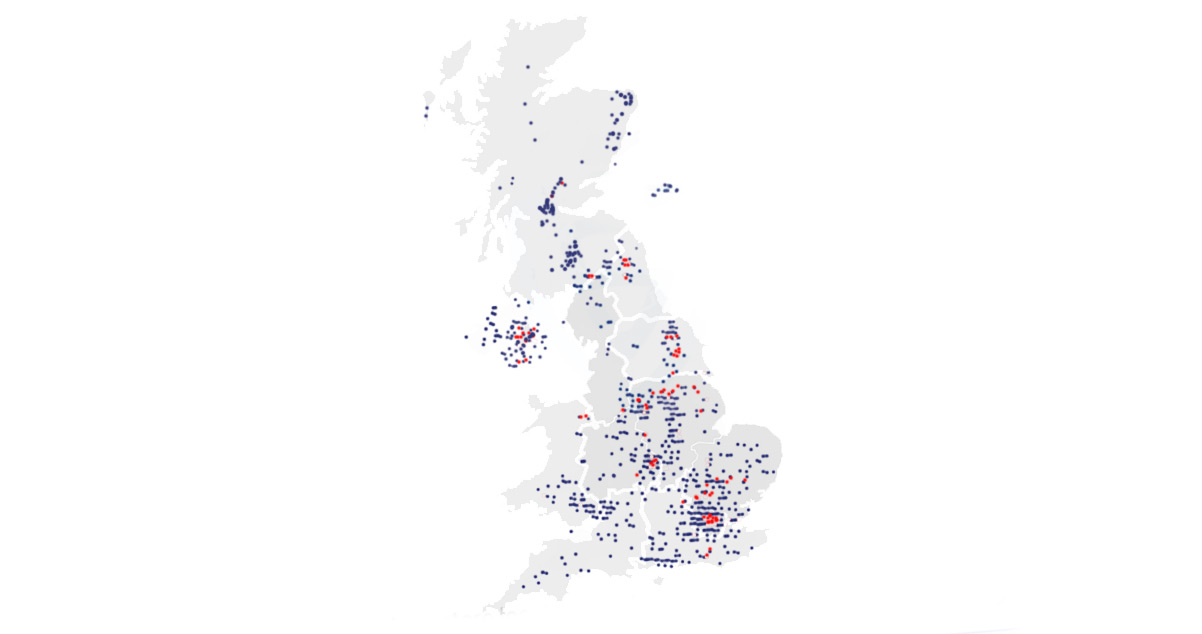
Nisa, a wholly-owned subsidiary of the Co-op Food Group, oversees a network of 1,078 supermarkets in the UK. Among these, London (80), Birmingham (29), and Leeds (20) stand out as the cities with the highest concentrations of Nisa supermarkets. This subsidiary, operating under the Co-op umbrella, extends its reach across various urban centers, aligning with the broader strategy of providing accessible and community-centric shopping options to diverse customers.
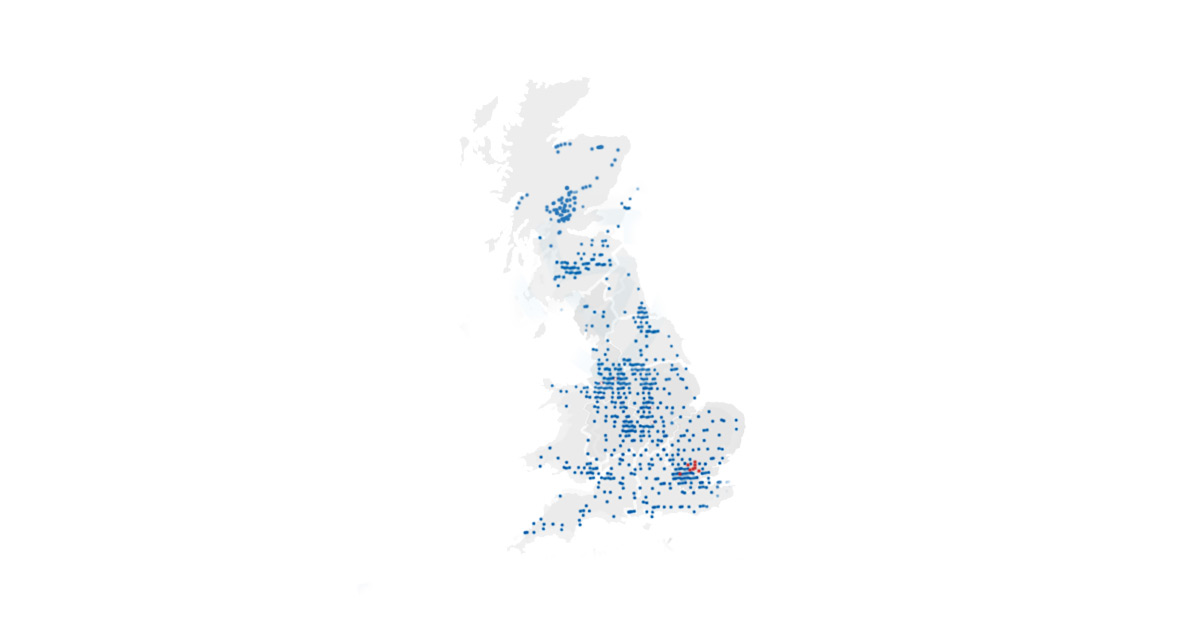
Aldi, the German discount supermarket chain, manages a network of 900 supermarkets in the UK, with Liverpool (6), Cardiff (8), and London (5) hosting the highest numbers. Renowned for its no-frills shopping experience and cost-effective products, Aldi strategically positions its stores in more central locations across England. This approach reflects Aldi's commitment to providing affordable and accessible grocery options to a diverse customer base, emphasizing simplicity and savings in its retail model.
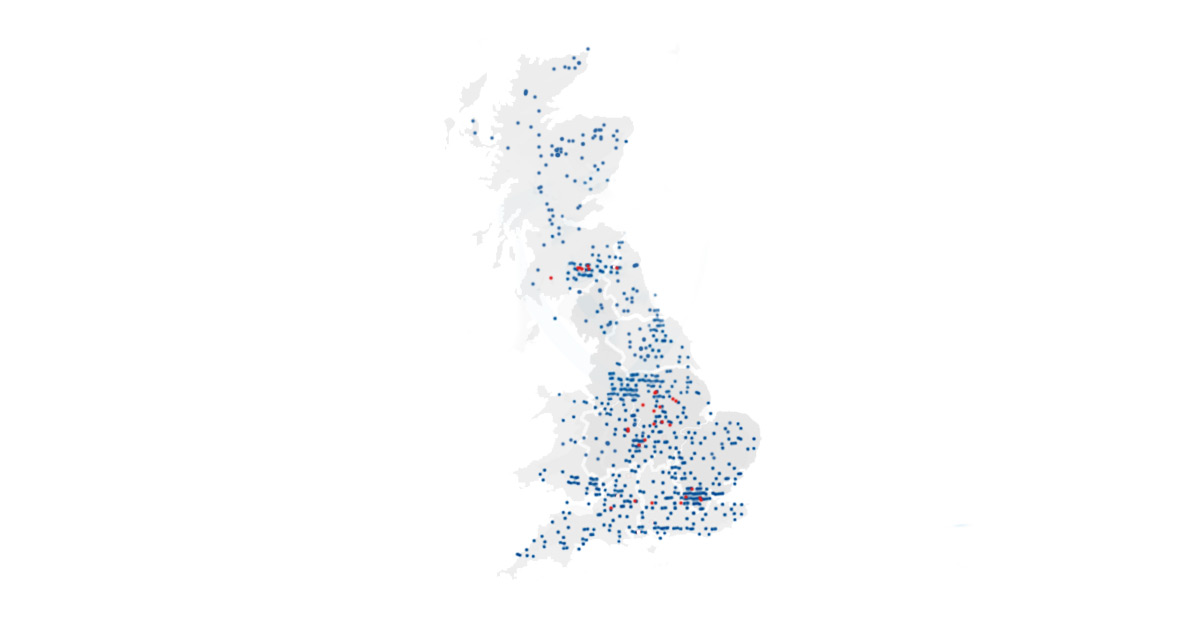
Lidl, the German retail giant, operates 834 supermarkets in the UK, with notable concentrations in London (22), Bristol (15), and Glasgow (12). Lidl has significantly impacted the UK market in recent years, offering a compelling mix of affordability and quality across fresh produce and non-food goods. This strategic approach has propelled Lidl's popularity, as consumers increasingly favor its stores for a cost-effective and diverse shopping experience.
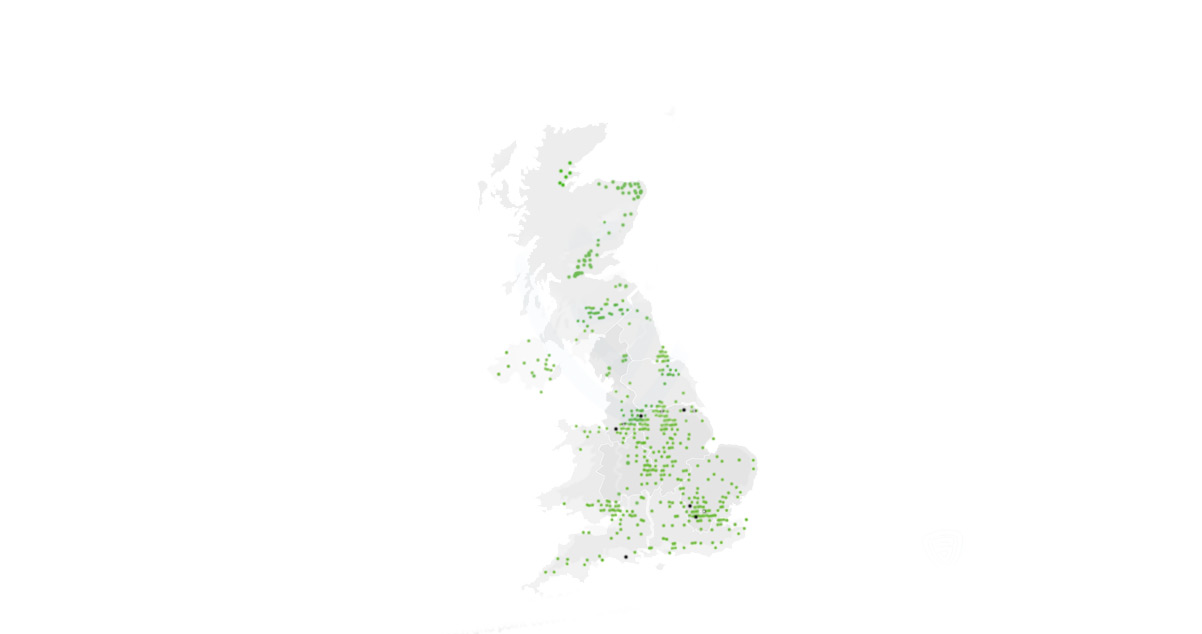
Asda, a Yorkshire-based chain, manages 630 stores across the UK, with notable concentrations in London (11), Manchester (09), and Leeds (09). Distinguishing itself by focusing on low-priced products and hypermarket-format stores, Asda maintains a more limited presence in London than other UK supermarket chains. While initially owned by Walmart, Asda announced in October 2020 its intent to sell a majority stake to the ISSA brothers, founders of the EG Group, and equity firm TDR Capital for $6.86 billion.
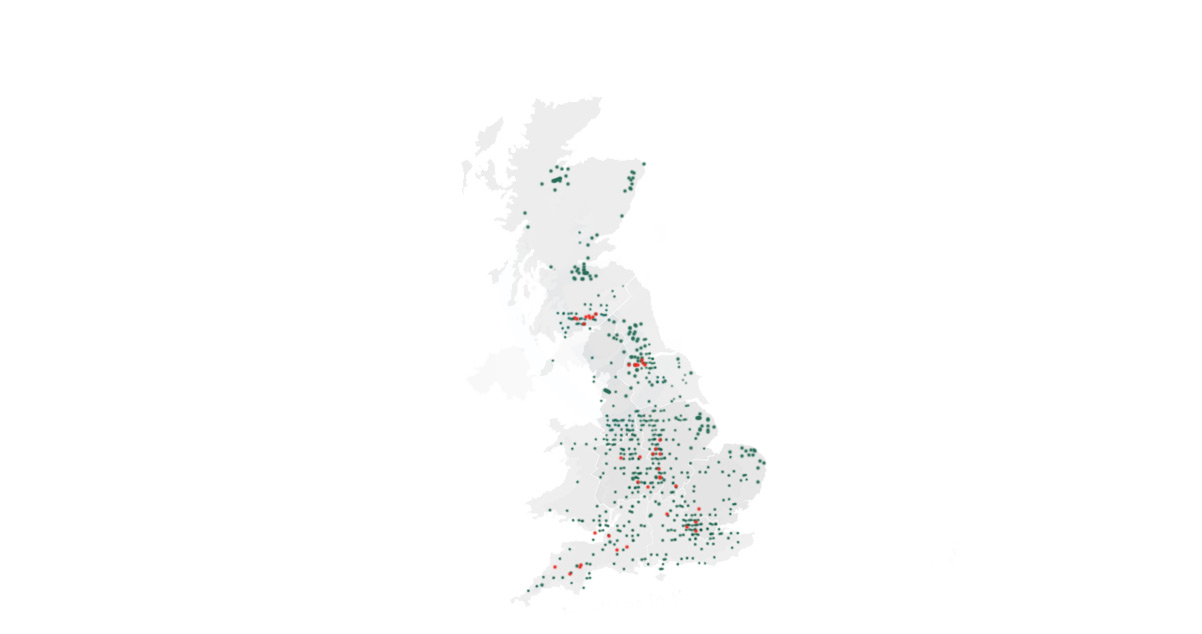
Morrisons, boasting 620 stores in the UK, sees a prominent presence in cities like Jersey (13), Glasgow (11), and Leeds (11). Originating as a regional supermarket in Yorkshire, Morrisons has expanded nationwide. Emphasizing fresh produce and a market-style shopping experience, the company delivers quality at reasonable prices. Morrisons' commitment to offering diverse, high-quality goods has contributed to its success, making it a go-to destination for customers seeking freshness and affordability.
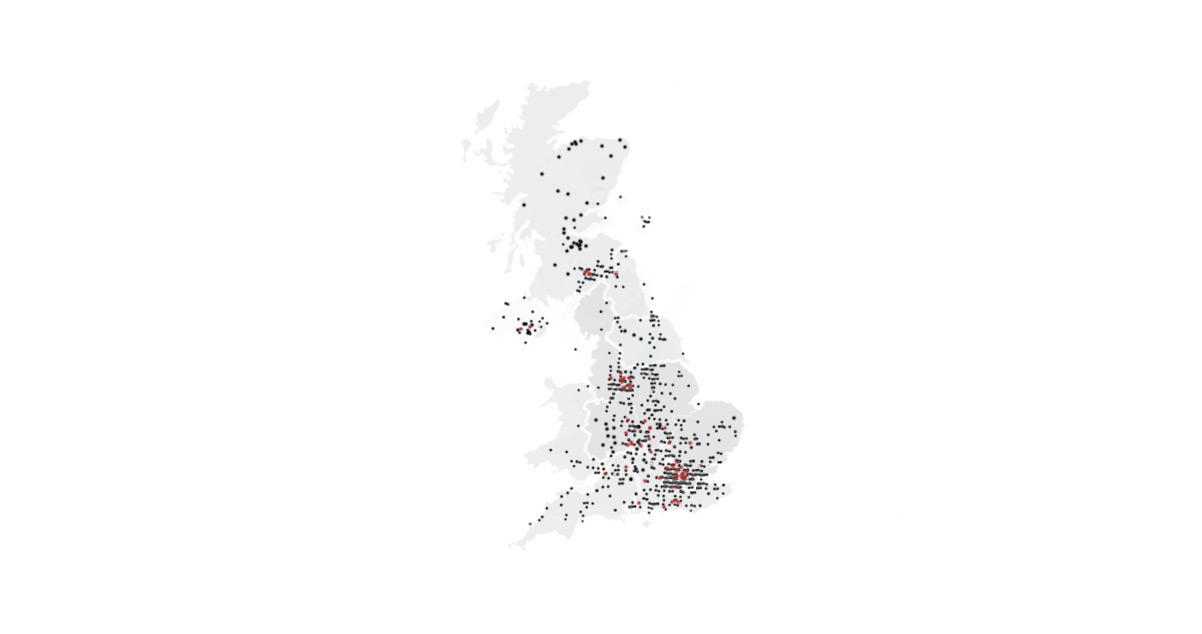
Woolworths, a renowned retail giant, seamlessly combines its fashion and homeware offerings with a diverse selection of food products. With 560 Woolworths Supermarkets spread across Australia, including significant concentrations in Sydney (44), Melbourne (11), and Brisbane (10), the brand has become synonymous with quality. Woolworths has particularly excelled in its brand and fresh produce categories, garnering praise from satisfied customers. In response to changing market trends, the company has adapted its strategy by establishing exclusive food-focused stores known as Woolworths Foodhall in recent decades.
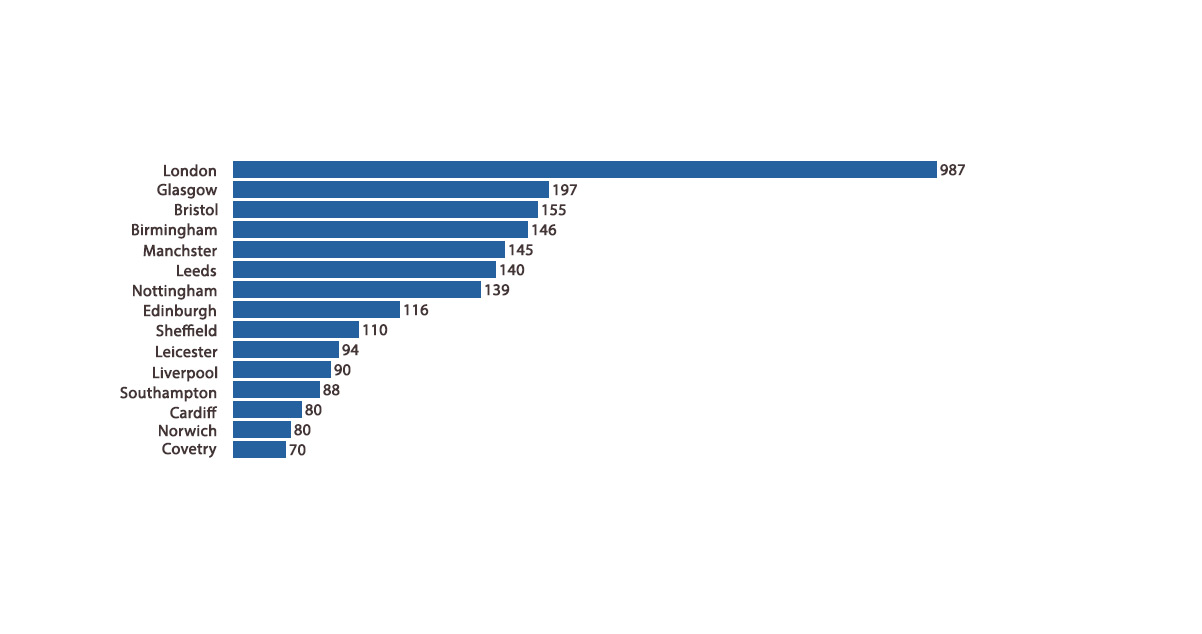
London has the highest number of supermarkets, boasting 987 locations, followed by Glasgow (197) and Bristol (155).
Within London, Tesco dominates as the largest supermarket chain with 293 stores, followed closely by Sainsbury's (278) and Co-op Food (164).
As the COVID-19 pandemic swept across Europe, searches for "food delivery" in the UK peaked in April, reflecting an unprecedented surge in demand for online grocery services. Supermarkets and delivery giants like Ocado, Deliveroo, and Amazon Fresh were overwhelmed by the overwhelming demand during the lockdown.
Supermarket chains in the UK experienced the highest sales growth in 26 years during the pandemic, driven by extensive consumer stockpiling. Scrape retail store location data to find retailers efficiently provided for increased demand, they faced vulnerabilities, particularly in the high costs associated with expanding online delivery operations. Despite profitability, significant chains like Tesco and Sainsbury's grappled with rapidly adapting to the sustained shift towards online grocery shopping.
By anticipating a lasting change in consumer behavior, big supermarket chains need help to afford a gradual adoption of online grocery services. The iWeb Data Scraping monitors store closures and openings, focusing on various retail sectors. Subscribing to store data plans provides comprehensive datasets with crucial information like store openings, closures, parking availability, in-store pickup options, services, subsidiaries, nearest competitor stores, and more.
We start by signing a Non-Disclosure Agreement (NDA) to protect your ideas.
Our team will analyze your needs to understand what you want.
You'll get a clear and detailed project outline showing how we'll work together.
We'll take care of the project, allowing you to focus on growing your business.